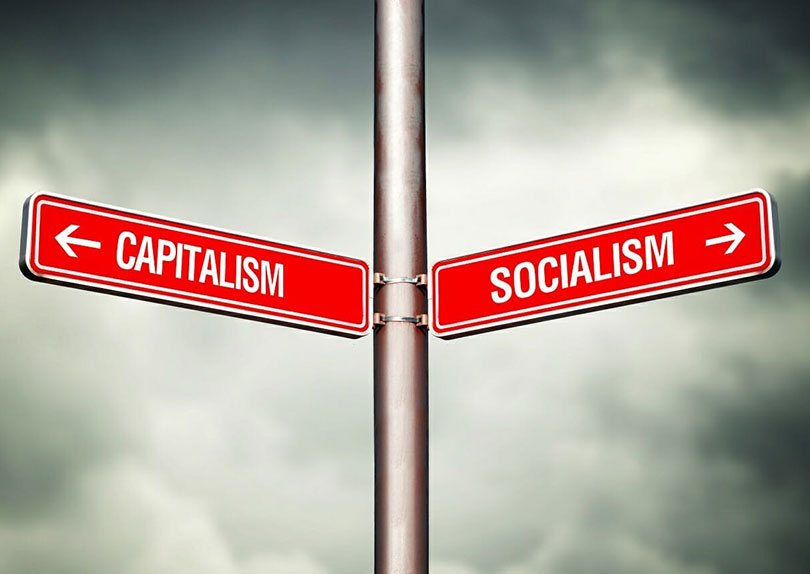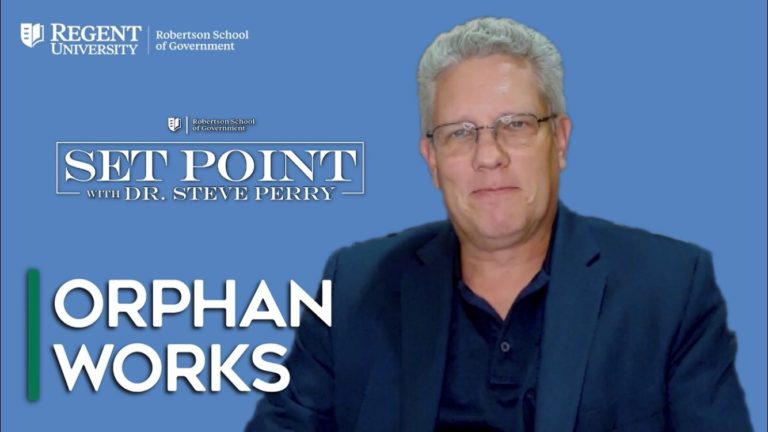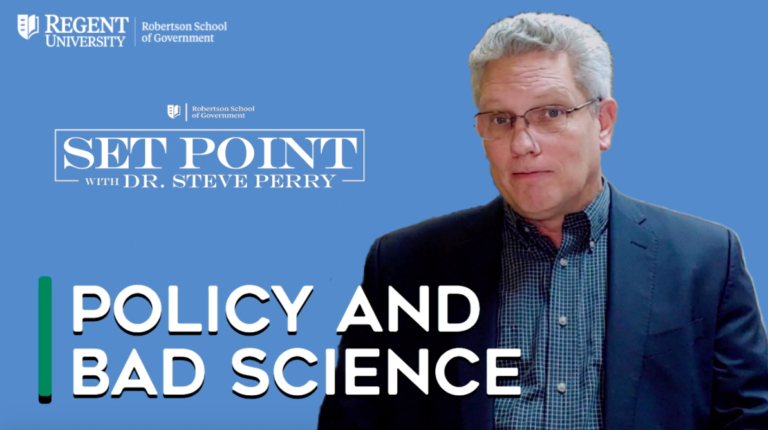The Millennials’ March: A Critique of the Rise of Advocacy for Socialism
In the United States today, there is an increasing criticism of capitalism and a growing discontentment with the nation’s economic system. In light of this, a significant proportion of the population is turning to not only political change, but advocacy for a completely new economic system: socialism. As tensions rise and economic conditions in the nation continue to garner criticism, the discussions at hand will only continue to develop and become more significant, especially among young millennial voters. The very nature of the political and economic structure of the United States is being challenged by the perspective of many young Americans, and this will without a doubt play a part in shaping the future of the country. Socialism, the system heralded as the savior of the American economy, poses a much more significant threat to America as a whole than many might expect. The most effective way to approach this topic is with an educated perspective that allows one to weigh the potential risks and rewards. This is particularly important, as while the potential rewards of socialism are often elevated and publicly praised, its fundamental and historical risks are not fully understood, or made to seem insignificant or improbable, by some of its supporters.
In this paper, I will analyze the prominent sources of contention with the current American capitalist economic system, the perspective of socialism by millennials and its proposed implementation, a capitalist perspective on these grievances, and a biblical analysis of the situation.
Socialism’s appeal to younger generations is largely influenced by the impact the current economy and the conditions experienced by many millennials, especially college graduates, during the first years of their adult lives. Jack Kelly, writing in Forbes, explains, “Younger people face the frightening realization that they may be the first generation to have a lower standard of living than their parents. They are understandably concerned about how they can be self-sufficient, financially independent…if a person does not feel financially secure nor confident about their future, it is natural to hold off making big commitments, such as getting married, purchasing their first home, and having children. These things were once taken for granted by older generations. Now, it’s a hard-to-reach and nearly impossible dream for many people.” [Kelly] This very real and concerning situation is one that is certainly not to be overlooked, as the state of the economy, as well as the financial struggles and early onset of debt faced by many millennials causes significant stress for millions of Americans, especially college graduates who take on significant loans and yet struggle to find a well-paying job in industries in their fields, due to increased competition by thousands of other equally qualified new graduates. Low income and financial struggles are very relatable areas for many Americans, young and old, who face difficulty with making ends meet due to the wages they make in comparison to the increasingly high cost of living in the nation.
At face value, socialism and a form of economic egalitarianism can appear to be the perfect solutions to the problems at hand. Many young Americans see the idea of common and equal distribution of wealth, carried out primarily by the federal government, as the most effective way to address the economic inequality in the United States. Many have expressed displeasure and even outright anger against the so-called “one-percent”, the elite with substantially more wealth than the rest, who to some critics seem to turn a blind eye to those in need and impoverished around them when they easily could. Bernie Sanders, a long-time champion of socialism, has spoken out frequently about this. In an article in Dissent, Mark Engler reported that “Sanders defined his beliefs as an objection to Wall Street recklessness and extreme inequality: ‘What democratic socialism is about,’ he explained, ‘is saying that it is immoral and wrong that the top one-tenth of 1 percent in this country own…almost as much wealth as the bottom 90 percent.’” [Engler, p. 68]
Most supporters of socialism in America would not go as far as to adopt a fully communistic mindset and ignore or reject the benefit and importance of privately-owned property and business. However, they still defend the belief that many of the issues of the American economy are ones that can be most effectively addressed and solved through socialist influence and state control. Although the term in past decades has been reminiscent of starvation, cruelty, and suffering at the hands of powerful and corrupt governments, many young Americans believe the failures of socialism in the past are simply old memories that need to be reevaluated. Engler notes, “Part of the argument for socialism’s popularity in the under-thirty age bracket is that, for those young people now becoming increasingly influential in political life, the reticence bred by the Cold War no longer applies. As Bhaskar Sunkara has written with regard to Bernie Sanders, ‘the socialist label no longer conjures images of breadlines and gulags.’ Or, as Sarah Leonard puts it, ‘Because we came to political consciousness after 1989, we’re not instinctively freaked out by socialism.’ ” [Engler, p. 69] Faced with significant student debt, which has become increasingly common among graduates, along with other financial struggles, such as increasing rent costs, relatively low wages, high utility costs, and rising home expenses, the current generation of young adults fear that the economic freedom and stability of those before them, which they grew up aspiring to have, is now far more difficult to attain, and seemingly impossible for some. Many point to the capitalist system of the United States as the problem, accusing capitalism of exploitation that creates debt and financial hardship. They believe that, because of the struggles they face, capitalism itself has failed as an economic system, and socialism is now the best and most logical solution to the problems in the nation.
The glaring issue with this perspective lies in the fact that these propositions for change reflect a rather extreme, all-or-nothing perspective. This mindset, fueled by the current economic condition of the United States, is resulting in a dramatic lack of faith in the capitalist free market system. The economic shortcomings of modern capitalism in America are not seen as issues to be rectified; rather, the entire free market capitalist system itself is being rejected, portrayed in the minds of many as a chronic, cancerous ailment of the country that needs to be entirely removed and replaced by state regulation. In reality, many of the issues faced are not the fault of the capitalist system itself, but rather the current implementation of it in much of the West.
Kelly paints a background for the source and origins of these corruptions: “America’s economic illness has a name: financialization. It’s an academic term for the trend by which Wall Street and its methods have come to reign supreme in America, permeating not just the financial industry but also much of American business.” [Kelly] Many of the contributors to this illness of financialization come from the increases in debt and lending, as well as selfish manipulation of the capitalist system and the political-like power many executives and CEOs have. Essentially, instead of being a system that serves and tends to the needs of others, capitalism in the United States is being distorted into a servant of itself.
However, this is not due to the capitalist philosophy, or even entirely to the elite or executives who many today are rallying against. One of the primary contributors to this ‘illness’ is the very thing that advocates of socialism believe will resolve these issues: increased government involvement in the free market. Kelly continues,“…This revolution is often blamed on bankers. But it was facilitated by shifts in public policy, from both sides of the aisle, and crafted by the government leaders, policymakers and regulators entrusted with keeping markets operating smoothly.” [Kelly] In the 1970s, as economic growth in the United States gradually decreased, in an attempt to support it, policymakers began to search for options. The decision was made to shift a significant amount of the U.S. economy’s regulation over to the financial markets. In giving them this power, the problem was seemingly solved, but also presented significant side effects. Politicians gave those prominent in finance and banking the ability to become a powerful governing influence and gain an immense impact on the nation’s economic landscape, especially in the form of lending, deregulated interest, and the growing prominence of debt in financing. The power that many large financial corporations and banks hold today is not a result of capitalism, but rather the government’s involvement in the market system and the long-term consequences of its interventions.
Similarly, many of the complaints millennials have about the current American economy today, which socialism is supposedly capable of correcting, are not the result of capitalism, but rather improper federal intervention in the free market. “This sickness…a complex and long-term web of changes in government and private industry, now manifests itself in myriad ways: a housing market that is bifurcated and dependent on government life support, a retirement system that has left millions insecure in their old age, a tax code that favors debt over equity.” [Kelly]
In a naturally functioning free market system, the most successful companies prosper, while those that are failing must either find a way to compete, or fall from the market. The competition of capitalism, while in part driven by the purpose of making a profit, is actually to serve and meet the needs of the people. A business cannot make sales if its product or service is not something that people need, specifically enough to willingly pay for. A product that is not important for the interests and needs of people, or is not of a high enough quality in comparison to its competitors, cannot succeed. Thus, true capitalism can only work properly through serving others, and even a profit-minded business is essentially ‘forced’ to consider the needs of others. Capitalism generates virtuous action and service, even from those seeking their own selfish ambitions. However, when the government chooses to intervene in this process in the form of significant bailouts or incentives, allowing poorly serving companies to survive through artificially lining their pockets (such as the government bailouts, in some circumstances), it gives them a lower incentive to create products and services that are competitive and effectively meet needs, because it is less expensive to make cheap products or services and gain profit through making replacements or updates, and the risk of elimination from the market is reduced or removed due to the security of government funding. The incentive is gone. Essentially, the government has negatively affected the economy by simply ‘throwing’ money at the problems that arise, rather than allowing the system to balance itself out naturally and provide the proper incentive to capitalists to serve their customers well and remain competitive, or, in most cases, face becoming obsolete.
A socialist government could potentially do away with many of the ideas of business as we know it. The means of production of a nation would belong to all people, an emphasis on the social society’s ownership of production rather than indirect ownership through profit-based capitalism. One hand, many people look at this as a dramatic positive, doing away with the potential greed of capitalists attempting to exploit them by using their needs to rob them economically. Having many of these services provided by the government presents them with the apparent economic benefit of less that needs to be paid for, improving their quality of life. However, many do not realize the impact the full extent of socialism would have on life.
Full social control of the means of production sounds highly beneficial, until one realizes that this equal, egalitarian sharing of power would still be controlled through the federal government, comprised of individuals who, just like the rest of us, are prone to the same mistakes, flaws, and behaviors as those whom many point to as the current problem. However, if implemented, the nation’s economic power would then be concentrated through that single imperfect government, versus the conglomerate of imperfect private businesses, corporations, and markets of the status quo, with the ability to compete and keep one another in check. Also, America’s federal government is infamously inefficient in providing many services that the private sector has been consistently able to meet much more quickly and effectively. A socialist government would be obligated to place a large amount of the responsibilities and services once provided through the private sector and free market, upon itself. This would result in a dramatic decrease in the speed and efficiency in which many of our daily services, such as power, internet, television, and more, as they are now controlled by a federal government now tasked with its current responsibilities along with the added brunt of national services of many kinds.
Dr. Lee Edwards of the Heritage Foundation ponders, “In January 2016, YouGov asked millennials whether they had a favorable or unfavorable opinion of socialism. Eight percent replied, “very favorable,” 35 percent “somewhat favorable,” for a total of 43 percent…But would these same millennials choose socialism, if in exchange for “free” education and “free” health care, they would have to give up their personal property, such as their iPhone? Would seven percent of millennials declare their willingness to live under communism if they knew the real costs of communism as practiced in some 40 nations over the past century — the denial of free speech, a free press, and free assembly, the imprisonment and execution of dissidents, no free and open elections, no independent judiciary or rule of law, the dictatorship of the Communist Party in all matters and on all occasions?” [Edwards]
While no longer having to pay private corporations for these services also sounds optimal, some overlook the fact that they also still have to be paid for, one way or another. This would most likely take the form of increased taxes, potentially comparable to the costs paid for private services today, for services that would be of a lower quality or increased delay. This increased cost could potentially negatively impact the rate at which the national debt of the United States increases as well. Much of the employment in the nation would be for non-essential services, or for the government itself. And due to the nature of the now socialist government, there would be few ways for the people to make a significant impact or meet these needs themselves, besides one of their remaining individual powers: the right to vote. By surrendering individual freedoms and innovations to the collective people, supporters of socialism would then restrict themselves to the limitations and distance of the federal government, which would greatly decrease the quality of life of the nation on a local level, and ultimately on a national scale. Many democratic socialists, especially younger ones, do not properly educate themselves and fully comprehend the full implications of the system they advocate. They often desire the benefits of a welfare state but still believe in the private sector and market system at least to some degree. They in fact do not promote true socialism to its full extent. Many still have a perspective that, upon further inspection, reflects a properly functioning capitalist system, in addition to a significantly improved or increased welfare system. The issues of current American capitalism are clear, but socialism itself is not the answer to them.
Some Christians point to the Bible itself to support socialism. Looking to examples such as models of the early church in Acts, they show how freely those who had, gave to those in need. These admirable actions in service to the Lord were indeed great sacrifices, but never ones that reflected the mindset of socialism, to surrender all that one had to the common use of the people, or for those who were better off to give until all were of the same status, reflecting the American sentiment of bringing down the “one percent”. Dr. Art Lindsley provides clarification of the early church’s generous actions in the book of Acts. “Even though it may seem that the phrases ‘had all things in common’, ‘selling their property’, and ‘all things were common property’ [In Acts 2-5] mean that the early believers sold everything and had a common pot, the context immediately qualifies these general statements. The believers continued to live and meet in their own homes…Note the positive example of Barnabas (Acts 4)…Barnabas ‘owned a tract of land, sold it, and brought the money and laid it at the apostles’ feet’ (Acts 4:37)…it does not say that this giving comprised all of his possessions or that it was the only tract of land he owned…when Barnabas saw that there were needs he could meet, he was generous with what he owned.” (Bradley & Lindsley, pp. 88-89)
Many supporters of socialism believe that this new economic system would, in fact, create a ‘common pot’, available to anyone with need, to meet the needs of all. However, as reflected in Lindsley’s comments, this idealistic concept does not reflect the true context of the nature of socialism, especially an American economic system that was established and built on capitalism, becoming suddenly retrofitted to a government never designed to function in such a manner. To concede the hope of improving the American capitalist condition today to the government based power of socialism, the American people would be trading their work and effort for the hope of government control and handouts to do the same. Rather than leave the change and improvement of our economy to the innovation, creativity, and entrepreneurial spirit of the people to meet the needs of people efficiently, and the purposes of democracy to change our nation’s landscape over time, the people are leaning ever more heavily towards sitting back and expecting the government to solve the problems, even the many problems that we as the private sector are far better equipped to do.
The end results of a socialist economy would prove deeply damaging to the success, sustainability, and growth of our country. The frustration with the elite that is widespread today would only worsen as the few in government or a place of significant authority with the ability to directly benefit (as all others are subject to governmental distribution) greatly prosper as others suffer under inefficiency or possible corruption. The ailing economy of the United States would fall into an even more unstable condition, while the imbalance of power and influence would worsen. Prosperity and economic independence would transform into a significant dependency on the government for provision, and in some cases, even to meet the needs of daily life. What many supporters of socialism actually desire is what is technically a more assistive welfare state; however, even this is part of a capitalist system. [Kates] These “socialists” advocate for what is known as welfare capitalism, confusing it for what in actuality would be a much more fully controlling and restrictive socialist state. This poses a grave danger as many of these advocates are asking for something far different from what they think or expect, and yet are so frustrated with the current system, they fail to reconcile their emotions and perspectives with the realities of proper capitalism, and would rather take up the socialist system, even if they do not fully understand its immense implications for the nation.
Proverbs holds several wise statements about adopting this kind of mentality. By acting in exasperation and putting our faith in an economic system that has caused so much death, suffering, and financial ruin to nation upon nation, and yet expecting a different result, we speak of an idealistic outcome that we cannot ensure. Eradicating the capitalist system, despite its current ailments, and replacing it with the state economic control of socialism, would throw away far more of our economic freedom and strength than we realize, and harm our nation in a way that has repeatedly been nearly irreparable when implemented in the past. It is a grave danger that must not be overlooked, even as we turn our eyes towards a hopeful future. To say that just because socialism has consistently failed and caused devastation to nations over and over again in the past, does not mean it will this time, is a huge risk that should not be considered wise. Proverbs 14:23 states, “Hard work leads to a profit, but mere talk leads to poverty”. (NIV) The diligence and determination of the entrepreneurial spirit, the mentality that so many young Americans have today to provide a better life for themselves, their families and peers, and the nation as a whole, has led to so many who are becoming more outspoken and active who could use the free market and capitalism to substantially impact our nations.
Proverbs 12:24 also warns, “Diligent hands will rule, but laziness ends in forced labor.” (NIV) I want to be clear: in this, I certainly do not intend to imply that those who support socialism are lazy or in some way less vigilant. They believe in it specifically because they deeply desire to see our nation and all its people thrive. Their arguments and hopes are made for the good of our nation and its citizens, and their care and empathy for others. But sadly, there are figurative mountains in our current economic condition that seem too large to surmount, and for many, it seems that there is no other way but to sit to the side and surrender our economic power collectively to the government. Attempting to fix capitalism seems almost foolhardy to many. But we must not overlook the dangers of this abandonment of our economic freedoms; by the time the effects that have been observed in socialism so many times in the past potentially take root in the United States, it may be too late to regain those freedoms. The work that we do could no longer be for ourselves, but forced upon us for the social collective’s will, manifested through the socialist government we establish.
As Solomon penned in Ecclesiastes 3:22, “So I saw that there is nothing better than that a man should rejoice in his work, for that is his lot…” (ESV) The work that we do, and the power that we as a people have through capitalism in the private sector and free market, should never be overlooked. We must continue to take pride in our labor and the power we wield for change, and also remain responsible for caring for and using it well. Surrendering it to the government does not make us the ones to heroically wrest our economic freedom from the grasp of the elite; it presents the opportunity to give our government the freely surrendered authority to strip it from all of us if needed, whether intentionally for control or through corruption, or unintentionally through inefficiency or dependency on the taxpayers to sustain itself.
Karl Marx himself believed that socialism is the first step of a nation towards communism; in fact, he considered socialism as simply a lower stage of communism itself. The emphatic march of our younger population towards this dangerous step may launch us onto a path that may cost us far more to return from than to recognize, address, and resolve the issues of misuse and corruption in our existing system. It is the hope of this author that we will begin to see the dangers, and rise to meet the difficult choices that lie ahead for our nation. Whether the United States maintains its capitalist system and must address its glaring issues, or we are cast down the dangerous road of socialism and must deal with the new struggles and circumstances it will present, we as Christians, and as a nation, must stay strong, and truly believe, that nothing, even the nearly insurmountable challenges and trials our nation may face in the future, is impossible for God.
“Fear not, for I am with you; be not dismayed, for I am your God;
I will strengthen you, I will help you, I will uphold you with my righteous right hand.
Isaiah 41:10 (ESV)
Works Cited
1. Engler, Mark. Naming Our Desire: How do we talk about socialism in America? Dissent, Volume 64, Number 4, Fall 2017, pp. 64-74. University of Pennsylvania Press, Philadelphia. https://muse.jhu.edu/article/676071/pdf
2. Kelly, Jack. Why Young Voters Are Embracing Bernie Sanders And Democratic Socialism. Forbes. Jersey City. February 5, 2020. Web Access. https://www.forbes.com/sites/jackkelly/2020/02/05/the-reasons-why-young-voters-are-embracing-bernie-sanders-and-socialism/#7d0270fa2f17
3. Kates, Stephen. Why Socialism Always Fails. The Centre for Independent Studies, Sydney. March 15, 2019. Web Access. https://www.cis.org.au/commentary/articles/why-socialism-always-fails/
4. Lindsley, Bradley. Does God Require the State to Redistribute Wealth? An Examination of Jubilee and Acts 2-5. For The Least Of These: A Biblical Answer to Poverty. Pp. 79-93. Edited by Anne R. Bradley and Art Lindsley. Zondervan. Grand Rapids, 2014.
5. Edwards, Lee. What Americans Must Know About Socialism. The Heritage Foundation. Washington, DC. December 3, 2018. Web Access. https://www.heritage.org/progressivism/commentary/what-americans-must-know-about-socialism
6. Foroohar, Rana. American Capitalism’s Great Crisis. TIME. New York. May 12, 2016. Web Access. https://time.com/4327419/american-capitalisms-great-crisis/
The views and opinions expressed in this post are those of the authors and do not necessarily reflect the official policy or position of Regent University.






